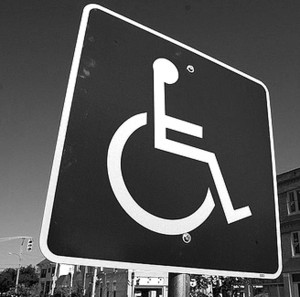
Welcome back Gusties to the spring semester of 2011 and, for seniors including myself, the very last semester as undergraduates. At this point in my college career, I can’t help but get nostalgic about all the experiences I’ve had here—the classes I’ve taken, the friends I’ve made, the good, the bad and the silly. Truth be told, I’ve had some crazy opportunities at Gustavus to travel all the way to Italy, learn about the cutting edge of social science and participate in awesome campus activities. And although attending a four-year college isn’t exactly rare, I feel pretty fortunate to have made it this far.
However, there are many individuals who won’t be able to enjoy the same blessings I have. No, I’m not referencing socio-economic status or homelessness (those issues having already been covered in The Weekly). Rather, simple abilities I take for granted like walking or feeding myself are things that millions of people live without.
At college, it’s easy to forget about those who experience physical and cognitive disabilities. We tend to think of wheelchairs and voice boxes as objects confined to nursing homes for grandmas who smoked a little too much back in the day. When I was a child, I remember being startled by people who couldn’t move or communicate normally —as if their complex medical conditions were somehow contagious. Even as I got older, I still felt slightly uncomfortable around individuals with disabilities.
This past summer, I got over this irrational fear by accepting a counselor position at Camp Courage, a place devoted to serving people with special needs. I had first heard about Courage from my dad, who worked there during his college summers. He always told fanciful stories about dodging tornados and rescuing adrift pontoons, all the while meeting amazing campers and coworkers. Despite being a little dubious, I figured I should give it a shot.
After initially arriving at camp, I was worried I wouldn’t know how to interact with the campers and forget how to address their medical and hygienic needs. Many campers had serious conditions, including cerebral palsy, spina bifida and traumatic brain injury, among others. Our counselor duties required us to help feed these individuals, clothe them and assist them in the bathroom. Obviously, it wasn’t glorified work, but oftentimes, hilarious conversations would break out when least expected. Some of the campers were extremely witty and could make the best of any situation, which made life much easier on us counselors as we figured out what to do.
Over the course of the summer, Camp Courage hosted sessions for children, adolescents and adults in addition to specialized camps for kids with celiac disease, cancer and asthma. Each day consisted of recreational activities that campers may not ordinarily be able to participate in. There was a stable for campers to ride horses, an indoor pool, a mini-golf course and lots of lakefront equipment such as kayaks, sailboats and inner tubes. It was neat watching kids get genuinely excited about things they had never tried before. Every session ended with a campfire night, so campers and staff could say goodbye to all the friends we’d made.
My time at Camp Courage showed me that I have much more in common with special-needs individuals than differences. We sang the same songs, laughed at the same jokes and complained about the same things. Though certain campers had their quirks, the staff tried its hardest to make them feel at home. In fact, many campers I talked to spend their entire year looking forward to their week at camp.
One camper I met, named Hannah, explained why camp is so important to her: “For that week, I feel completely normal because I look like everyone else. Everyone else is in wheelchairs, some use computers to talk, everybody moves differently like I do … being different does have its difficulties; however, I have people who understand what it’s like, which is an incredible blessing.”Although she experiences daily challenges as a result of cerebral palsy, Hannah’s life exudes incredible hope and kindness regardless. You can read more about her life as a college student here.
Instead of being afraid of or feeling sorry for people with disabilities, it’s important to celebrate the abilities they do have and to recognize them as friends, neighbors and relatives. Those of us blessed with fully functioning bodies thus have the responsibility not just to care for, but also to learn from these extraordinary individuals.
Paul,
You not only capture the essence of Courage but give a tremendous amount of respect to people with disabilities. This article totally made me squeal for joy! And, thanks for the plug…made my day!
Hannah!
Hi Paul, I often wonder who benefits more from Camp Courage- the campers or the counselors. Hannah has devoted her life to changing people’s attitudes on person at a time. When Hannah was contemplating college, many people, including her physical and occupational therapists would ask, “Now how is that going to work?” Hannah looks forward to her Camp Courage time. It’s the only thing worth the 19 hour round trip drive from Chicago. -Hannah’s Dad.
I think that you are so right!!!